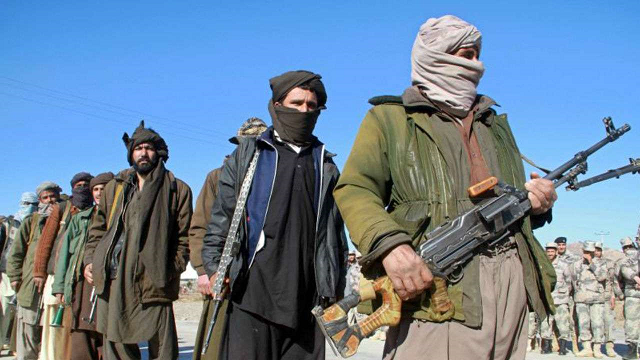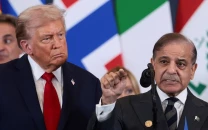Neither peace nor war
Essentially, the US has left the future of Afghanistan, its governance and political setup in the hands of the Taliban

PHOTO: REUTERS
To understand the outcome we need to use the Critical Discourse Analysis (CDA) – a theoretical framework that examines such textual political agreements by analysing specific words and overall structure to make sense of it. Using this, the US-Taliban agreement comes down to three key points.
First: the subtle recognition of the Taliban by the US. The number of times the US-Taliban peace agreement mentions, “the Islamic Emirate of Afghanistan which is not recognized by the United States as a state and is known as the Taliban” shows the gist of the entire agreement: the US is out, and the Taliban is back in.
Through its admission of the non-admission of the Taliban as a state actor, the US accepts it as a legitimate future state actor. Hence, the agreement between the two that excludes the current US-backed Afghan government.
Second, the agreement reads more like a US surrender glossed with some face-saving clauses for rhetoric. For instance, the main demand of the Taliban (US withdrawal before intra-Afghan dialogue) has been accepted, however, with the face-saving bureaucratic clause of doing so in phases.
In actuality, under the agreement, the US will start the pullout process which takes months regardless, while the Taliban will participate in the intra-Afghan dialogue. In case things do not go according to plan, the US will have no leverage to influence the situation.
The no annexure in the deal on how to resolve such issues shows US lack of interest to be involved in Afghanistan anymore. This is also partly because President Trump is headed into the 2020 elections and wants the Afghan war ‘victory’ under his belt.
Third, Part 3, Clause 2 mentions the US expects positive relations with the "new post-settlement Afghan 'Islamic' government" — essentially accepting the critical demand of the Taliban and hinting to what the orientation of post-war Afghanistan will be.
Essentially, the US has left the future of Afghanistan, its governance and political setup in the hands of the Taliban and the US-backed political actors that will have little power in the absence of the US.
Based on this, there three potential outcomes can be predicted.
First: there will be neither peace nor war. The intra-Afghan dialogue will continue to move with roadblocks and low-scale violence across Afghanistan as the Taliban consolidate power and cut back on US-backed militant actors.
The scale of violence will be low enough to not make the international news and cause concern, but will ensure the Taliban are able to take hold of the country’s political, social, and governance mechanisms. The Afghan war will be reduced from international war to a regional war where China, Pakistan, Iran and Russia would play a larger role.
The second-most likely scenario could be that as the biggest beneficiary of the agreement, the Taliban will have more political will to ensure the agreement goes through smoothly, by ensuring the sanctity of the agreement by engaging with US-backed political actors and accommodating them where possible. However, the key threat to the agreement’s success stems from the US-backed political actors that have been left high and dry by the US. The Taliban would attempt to pacify them.
Third and final scenario could be a full-scale implosion leading to a civil war in Afghanistan. Given there is no consolidation of power and deep polarisation left by the US, the US-backed actors could create a situation to prolong US presence in Afghanistan against the Taliban. In such a scenario, the Taliban could go back to taking power through violence. However, given the US election season, US intervention would be unlikely, leaving the Taliban to run the Afghan affairs at will.
While the US-Taliban peace agreement is a monumental step, expecting things to go smoothly is unreasonable and unrealistic because peace is not a product you can acquire through a deal. It’s a process you have to be committed to, giving the same blood and sweat that was required in war. It’s easy to make war, harder to make peace.














COMMENTS
Comments are moderated and generally will be posted if they are on-topic and not abusive.
For more information, please see our Comments FAQ